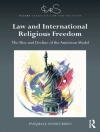This book explores how power operates in workplace settings at local, national and transnational levels. It argues that how people are valued in and out of work is a political dynamic, which reflects and shapes how societies treat their citizens.
Offering vital resources for activists and students on labour rights, employment issues and trade unions, this book argues that the influence workers can exert is changing dramatically and future challenges for change can be positive and progressive.
Содержание
1 Work, power and politics
2 History, global capitalism and contexts
3 The State, law and equality
4 Who speaks for whom?
5 The futures of work: power, politics and influence
Bibliography
Index
Об авторе
Tony Dundon is Professor of Human Resource Management (HRM) and Employment Relations for the Kemmy Business School at the University of Limerick, Ireland and Visiting Professor for the Work and Equalities Institute at the University of Manchester
Miguel Martínez Lucio is Professor in the HRM, Employment Relations and Employment Law Group for the Work and Equalities Institute at the University of Manchester
Emma Hughes is a Lecturer in HRM at the University of Liverpool Management School
Debra Howcroft is Professor of Technology and Organisation for the Work and Equalities Institute at the University of Manchester
Arjan Keizer is a Senior Lecturer in Comparative HRM and Industrial Relations in the HRM, Employment Relations and Employment Law Group for the Work and Equalities Institute at the University of Manchester
Roger Walden is an Honorary Lecturer in Labour and Employment Law at Alliance Manchester Business School at the University of Manchester












